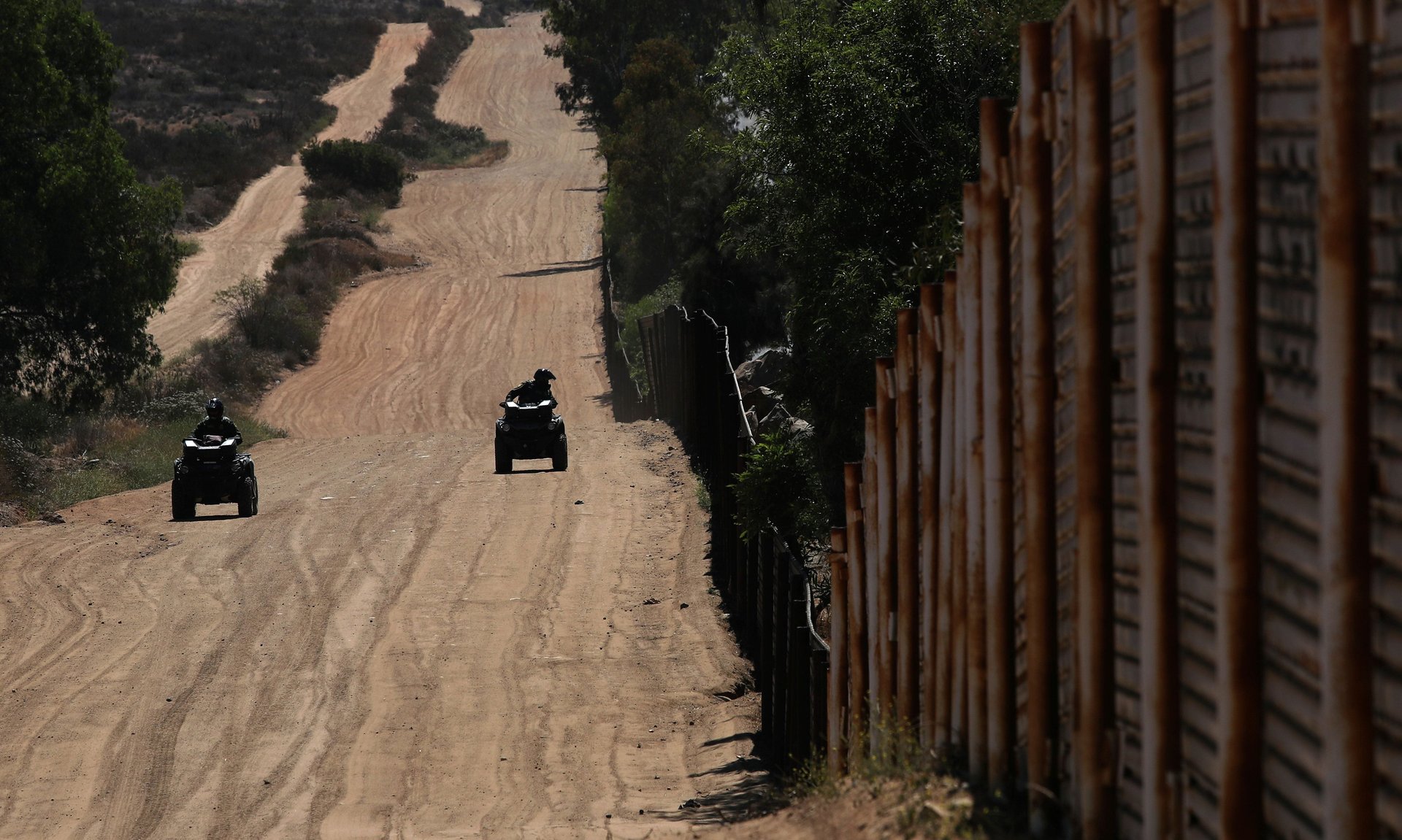US Customs and Border Protection’s radical new approach to a wall—the boring, apolitical truth
Donald Trump has made sure everyone knows what he wants in terms of border security: $5.7 billion for a border wall he says is going to protect the US and bring relief to overstretched Border Patrol agents.


Donald Trump has made sure everyone knows what he wants in terms of border security: $5.7 billion for a border wall he says is going to protect the US and bring relief to overstretched Border Patrol agents.
But what about the agency that employs those agents? On Wednesday, the US’s Customs and Border Protection (CBP) presented its own wish list during a press conference that was notable for its lack of flash, political zingers, or full names (the officials who held it asked not to be identified).
CBP officials want a “border wall system” that includes more technology, more manpower, and new infrastructure, but they never mentioned a coast-to-coast wall, which Trump once proposed. A barrier is not effective without technology or access roads, they said, and technology is less effective without barriers.
There’s “no one” solution that will prevent people from crossing the border, a senior official who has over 20 years of border experience emphasized.“Every situation will be different.”
It’s a far cry from Trump’s incendiary, myth-laden demands for the wall, and Homeland Security secretary Kirstjen Nielsen’s incomplete Congressional testimony and inaccurate statements.
CBP’s relatively neutral message Wednesday was a potent reminder of how deeply politicized the “border wall” fight has become through Trump’s presidency. Even inside CBP, one union head has emerged as a key Trump ally on the wall, while another union is suing him over the government shutdown. Meanwhile, its employees are among those who are not being paid.
As the shutdown drags on, the wall debate has become a political power struggle that has little to do with an actual physical barrier or the situation on the border. Trump missed his best chance for wall funding when Republicans controlled both houses of Congress last March, and has been struggling to get traction on the project since. A bipartisan bill that would have kept the government open didn’t include any wall funds, so he refused to sign it. Now a new crop of Democrats, elected in part by voters who disagree with his immigration policy, are refusing to budge an inch.
CBP officials at the press conference didn’t hew to one ideology or another, instead sticking to what they learned on the ground. In the Rio Grande Valley area, for example, there are “criminal elements” trying to cross the border who may never intend to be legal residents of the US, said one of them. But there are also “folks who are literally stepping foot onto US soil and giving themselves in to agents,” hoping to seek asylum. The CBP needs resources to process asylum seekers’ claims, not a wall to stop them from doing so, he indicated.
The CBP’s somewhat nuanced portrayal of the border’s reality isn’t likely to make the immigration hawks that helped elect Trump happy.
Ann Coulter, the far-right talking head, recently blasted Trump for failing to produce the coast-to-coast impermeable barrier he promised. Trump won because he “said many illegal immigrants are rapists and are bringing drugs and crime to the United States,” and called for “building a wall along the southern border.”
In an interview published this week, she said the president may be the “worst negotiator God ever created,” for failing to get wall funding when Republicans controlled Congress.
Not surprisingly, CBP officials ducked any question that could be construed as contradicting Trump outright. They refused to answer how much more of the US’s 2,000-mile border with Mexico should be walled, referring the question to the White House.
“We don’t speak for the president,” said one, when pressed on whether CBP agrees with Trump’s reasons for the $5.7 billion demand for border security. The White House has “been out in front in terms of how they define the crisis,” said another.